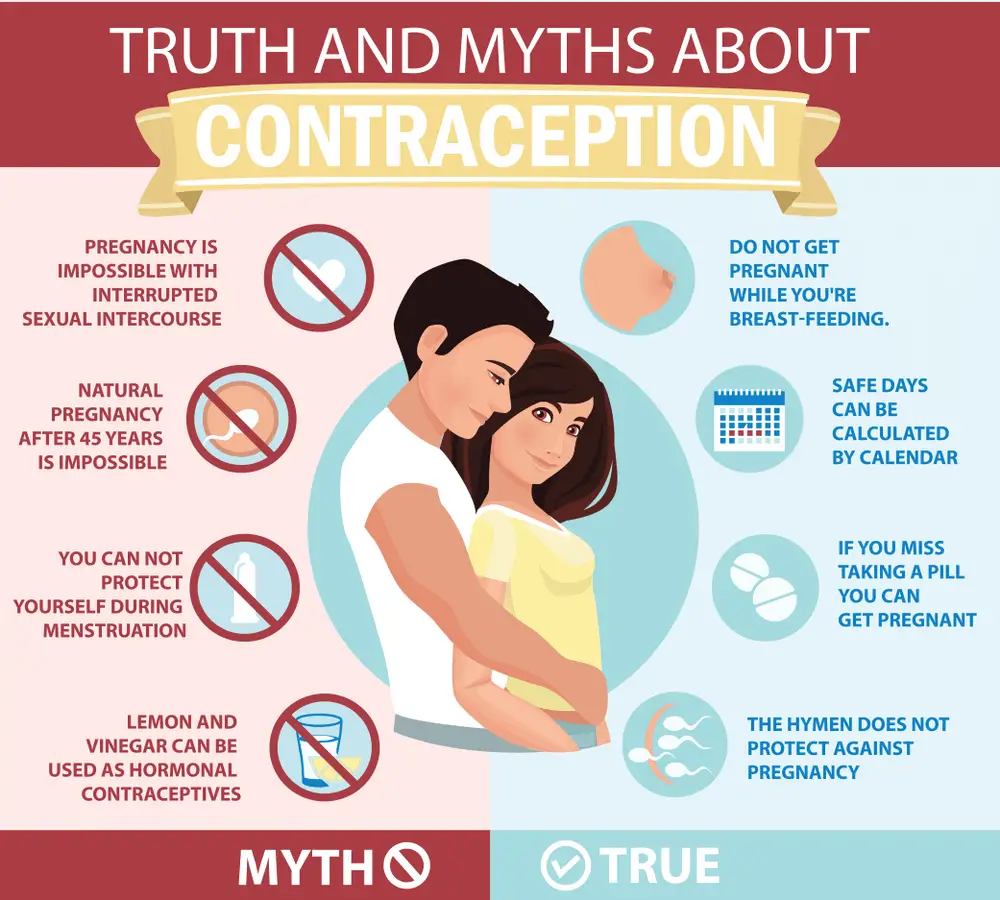Birth Control Myths and Facts about Contraception
India is the world’s second most populated country. It is expected to have 1.7 billion people and overtake China as the world’s most populated country by 2024.*
The problems of overpopulation For a developing country like India, overpopulation leads to serious problems like poverty, unemployment, a wider gap between the rich and the poor, and a burden on natural resources. The easiest and most effective method to contain population explosion is birth control.
Read Also: 6 Scientific Signs Decides Babies Gender – Boy or Girl
What is birth control?
Birth control is the way to prevent pregnancy by the use of various drugs, devices, sexual methods or surgical procedures. How well a birth control method works, depends on how carefully it is practiced. On World Population Day, let’s debunk some of the myths around birth control.
Birth Control Myths & Facts
Myth: Women can’t get pregnant during their periods.
Fact: Women may be less fertile during the first 3 to 4 days of their period. But since sperm can live for up to 5 days inside the female body, pregnancy is possible.
Myth: Condoms interfere with performance or satisfaction during sexual activity.
Fact: Certain condoms can help the user from premature release by controlling the erection longer. Condoms are the only form of protection that not only prevent pregnancy but also the transmission of sexually transmitted infections.
Embarrassed to ask for condoms over the counter? Choose from a wide range online, while maintaining privacy.
See Also: 10 Tricks to Get Baby to Sleep Through the Night
Myth: Sex without penetration or release is safe.
Fact: Even before they release, men release a fluid known as pre-sperm. In some cases, this fluid may contain live sperm, which may enter the vulva even without penetrative intercourse.
Stay safe and aware of our women’s sexual wellness range.
Myth: Urinating or washing after sex prevents pregnancy.
Fact: Once the sperm enters the uterus via the cervix, then those sperm cannot be removed by washing or urinating.
Myth: Breastfeeding prevents pregnancy.
Fact: Exclusive breastfeeding stops women to ovulate and if there is no ovulation then there is no pregnancy. But this method is effective only if the below conditions are met.
- The baby is below six months of age.
- Exclusive breastfeeding – Baby has only breast milk day and night periodically.
- The menstrual cycle has not yet started.
See Also: 10 Things What Men look for in Women
Myth: Birth control pills cause weight gain and other health problems.
Fact: Most women do not lose or gain weight due to using birth control pills. Some short-term side effects including changes in bleeding patterns during periods, headaches, and nausea may occur. However, these side effects are very short-lived and must not discourage you from using this birth control method.
Want to know the best birth control method for you? Talk to a gynecologist and clear all your doubts. Besides helping in family planning, birth control is also effective for population control.




